Episodes
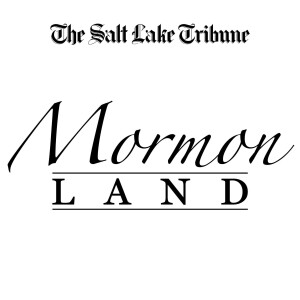
Wednesday Mar 27, 2024
Wednesday Mar 27, 2024
A decade after the Ordain Women movement within The Church of Jesus Christ of Latter-day Saints made national news, another feminist issue is getting lots of media attention.
During a March 17 meeting to celebrate the creation of the church’s Relief Society, J. Anette Dennis, first counselor in the faith’s global women’s organization, declared that “there is no other religious organization in the world that I know of that has so broadly given power and authority to women.”
Dennis went on to say that “other faiths ordain women to roles like priest or pastor, but those individuals represent a small minority when compared to the total number of women within their congregations.”
In the Utah-based church, all women “who choose a covenant relationship with God in the House of the Lord are endowed with priesthood power directly from God.”
It is a sentiment that has been expressed previously by Dallin H. Oaks, first counselor in the church’s governing First Presidency, and by Sheri Dew, a former counselor in the Relief Society General Presidency. But when the church posted Dennis’ quote on Instagram, a flood of responses from women ensued — more than 15,000 comments. And, in an unusual acknowledgment, the church’s social media team promised to share the “thoughts, feelings and experiences” with the faith’s leaders.
On this week’s show, discussing this speech, the overwhelming response it generated and the role of women in the church, are Julie Hanks, a Latter-day Saint therapist in Utah, and Amy Watkins Jensen, a Latter-day Saint middle school humanities teacher in Oakland, California, who created the Women on the Stand letter-writing campaign in the wake of women’s leaders being removed from the stand at worship services in the Bay Area.
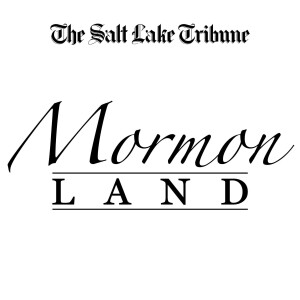
Wednesday Mar 20, 2024
Wednesday Mar 20, 2024
In the past, historians and preservationists were not always pleased with how The Church of Jesus Christ of Latter-day Saints treated its treasured buildings. Bulldozing Utah’s Coalville Tabernacle and gutting the Logan Temple led to cries of anguish from insiders and outsiders alike.
These days, though, the same groups are lauding the painstaking and resplendent renovation of the faith’s pioneer-era Manti Temple, which is now open to public tours. And they are reassured by the Salt Lake City-based church’s plans for its recent purchase of Mormonism’s first temple, in Kirtland, Ohio.
On this week’s show, Matthew Grow, managing director of the church’s History Department, and Emily Utt, a curator of Latter-day Saint historic sites, discuss these preservation efforts.
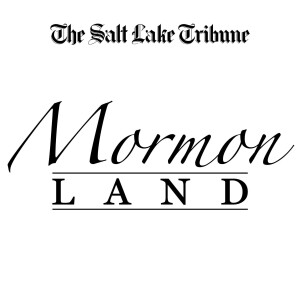
Thursday Mar 14, 2024
Thursday Mar 14, 2024
The recent acquisition by The Church of Jesus Christ of Latter-day Saints of Mormonism’s first temple — in Kirtland, Ohio — along with historic buildings in Nauvoo, Ill., similarly tied to founder Joseph Smith and his band of believers thrilled the global faith’s members.
For followers of the Community of Christ, formerly known as the Reorganized Church of Jesus Christ of Latter Day Saints and the longtime diligent, devoted caretakers of these properties, the sale, which that faith’s top leaders acknowledged was “painful,” brought sadness, heartache and tears.
While grateful for the good the $192 million purchase price will do for the Community of Christ’s future, they lament losing ownership of these cherished pieces of their past.
On this week’s show to discuss that past and that future is David Howlett, a Community of Christ historian, visiting religion professor at Smith College in Massachusetts and author of “Kirtland Temple: The Biography of a Shared Mormon Sacred Space.”
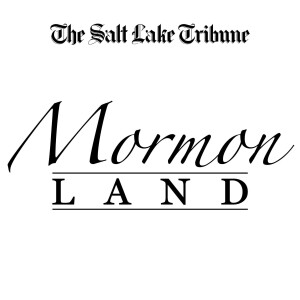
Thursday Mar 07, 2024
Thursday Mar 07, 2024
Money talks. It makes headlines, too. Just ask The Church of Jesus Christ of Latter-day Saints.
The Utah-based faith’s finances have become a source of discussion, debate and, yes, dissent among insiders and outsiders.
In recent weeks, the church’s chief investment arm, Ensign Peak Advisors, has seen its publicly reported stock portfolio shoot past $50 billion, helping to propel the global faith’s total wealth to an estimated $265 billion.
Days ago, the 9th U.S. Circuit Court of Appeals handed the church a mini-victory, agreeing to rehear the fraud lawsuit brought against it by a prominent Utahn, James Huntsman, who has accused Latter-day Saint leaders of misleading members about how the faith spends tithing funds.
In addition, the church has been targeted in at least five states by a string of what it has called “copycat” tithing lawsuits seeking class-action status.
On this week’s show, Salt Lake Tribune reporter Tony Semerad, who has been tracking the church’s finances and legal entanglements for a number of years, helps sort out all this money maneuvering and courtroom drama.
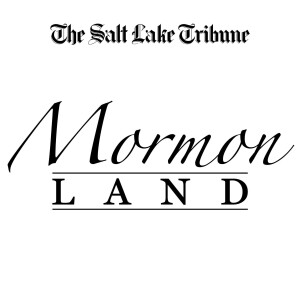
Wednesday Feb 28, 2024
Wednesday Feb 28, 2024
Even in the 19th century, Brigham Young Academy (later Brigham Young University) welcomed students of both sexes, all nationalities, religions, races and colors.
Nearly from the start, it included women, which made it distinctive among other American higher-education institutions. And the school — owned and operated by The Church of Jesus Christ of Latter-day Saints — had a small but consistent nonwhite student population.
That included the school’s first Black graduate, Norman Wilson (not a Latter-day Saint), who earned his degree in 1939.
Grace Ann Soelberg curated a BYU exhibit honoring Wilson. She also explored how Black students were treated at the school, and how they were depicted, including examples of blackface, in its yearbooks from 1911 to 1985.
On this week’s show, Soelberg, now a graduate student at the University of Utah, discusses her findings.
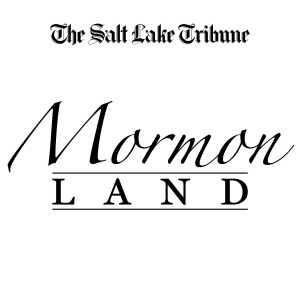
Wednesday Feb 21, 2024
Wednesday Feb 21, 2024
What most Latter-day Saint historians and other scholars know about D. Michael Quinn is that he was, by all accounts, a remarkable researcher who could assemble disparate dots into a colorful mosaic.
They may know that he was excommunicated from The Church of Jesus Christ of Latter-day Saints as part of the “September Six” for his discussion of post-Manifesto polygamy and other controversial topics or that he was an expert in the faith’s financial dealings and hierarchy. But now, nearly three years after his death at age 77, the public will hear for the first time of his inner struggles as a gay man in the church that for most of his life preached that homosexuality was a sin.
Signature Books has now published Quinn’s heartbreaking autobiography, titled “Chosen Path: A Memoir,” described as a “relentlessly episodic” look at the deeply personal agonies and ecstasies of his life and work, while offering his perspective on significant church events that occurred while he was writing about Mormonism. Three themes are thread through his entries: his relationship with himself as a closeted gay man, with his oft-absent and secretive father, and with his church.
On this week’s show, Moshe Quinn, his son, who wrote a foreword, and Barbara Jones Brown, who edited the volume Quinn gleaned from his multiple journals, discuss the revelations in his memoir.
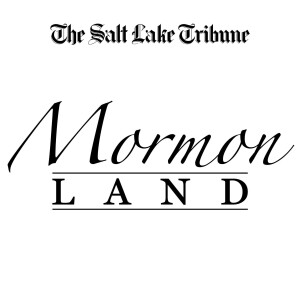
Wednesday Feb 14, 2024
Wednesday Feb 14, 2024
Ah, Valentine’s Day, a holiday full of hearts and hopes, cards and candy, roses and romance. It’s a time couples seek their favorite table at their favorite restaurant and view their favorite rom-com from their favorite couch.
What does it mean, though, for young members of The Church of Jesus Christ of Latter-day Saints? Are they on the lookout for more than gestures — indeed, eternal marriage — or do they just want to have a good time?
On this week’s show, two young single adult Latter-day Saints, Sara Sumsion, who is working on a master’s degree in marriage and family therapy at Northwestern University, and Matt Judd, a health statistics consultant, discuss what the Latter-day Saint dating scene is REALLY like.
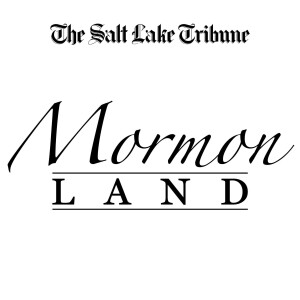
Wednesday Feb 07, 2024
Wednesday Feb 07, 2024
Easter is the most significant holiday on the Christian calendar, celebrated in solemnity and song, pageantry and prayer, rituals and rejoicing, “hosannas and hallelujahs.”
While members of The Church of Jesus Christ of Latter-day Saints believe deeply in Christ’s resurrection, they have not participated as a church with the rest of Christendom in immersive traditions like waving palms on Palm Sunday, washing feet on Maundy Thursday or carrying a large cross for Good Friday. So, many Latter-day Saints have joined with other Christians on these holy practices.
Last year, though, top Latter-day Saint leaders encouraged members to find ways to better commemorate the sacred moment when they believe Jesus rose from the dead.
Eric Huntsman, a Brigham Young University professor of ancient scripture, has spent his career reading biblical texts in their original languages. Last year, Huntsman, who is currently on hiatus from his position as academic director at BYU’s Jerusalem Center, co-wrote a book with Trevan Hatch, “Greater Love Hath No Man: A Latter-day Saint Guide to Celebrating the Easter Season.”
As many Christians prepare for next week’s Lent, Huntsman offers other tips on how Latter-day Saint individuals and families can better remember the “climax of the gospel story.”
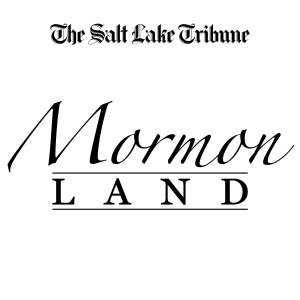
Wednesday Jan 31, 2024
Wednesday Jan 31, 2024
Chelsea Goodrich was a returned missionary pursuing a graduate degree in California when she came forward with allegations that her father, John Goodrich, had molested her throughout her childhood.
(In a statement to The Salt Lake Tribune, John Goodrich has denied the accusations of sexual assault.)
The alleged abuse, the subject of a recent Associated Press investigation, is not the reason, however, that Chelsea, now a 38-year-old licensed counselor, no longer identifies as a member of The Church of Jesus Christ of Latter-day Saints. She attributes that shift to the response she received when she tried to protect children.
Friends and family, many from the tightknit Latter-day Saint community of Mountain Home, Idaho, where she grew up, discouraged her from continuing to press the matter, urging her instead to forgive her father.
In this week’s episode, she joins Deidre Nicole Green, a Latter-day Saint and theologian at the Graduate Theological Union in Berkeley, Calif., to discuss how church leaders, members and others sometimes “weaponize” forgiveness, silencing survivors and preventing justice.
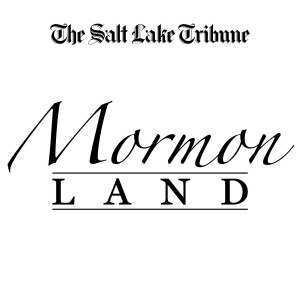
Wednesday Jan 24, 2024
Wednesday Jan 24, 2024
Every year, a new crop of young Latter-day Saints turning 12 by December will graduate from Primary, the faith’s program for children. The boys will get a new title — “deacon” — and start passing the bread and water of the sacrament (known as Communion in other Christian faiths and mostly distributed by priests and pastors), while the girls will start attending the Young Women’s program and get no new identity.
Why is there such a gender difference around the sacrament in The Church of Jesus Christ of Latter-day Saints? Tradition, says Sam Brunson, a Latter-day Saint tax attorney in Chicago who often writes about church issues on the blog By Common Consent. Or, in other words, “policy choices that church leaders made decades ago.”
Yes, the church has an all-male priesthood, but is passing the sacrament really a priesthood function? And if the Utah-based faith allows young women to carry those trays, does that mean they have to open up the priesthood to women?
On this week’s show, Brunson talks about how such differences came to be in the church and why he thinks some of them could be revised — without formally giving women the priesthood.

More Mormon Land
There's more to "Mormon Land" than just the podcast. You can get access to episode transcripts, Tribune faith stories and more on Patreon.
Sign up for the free weekly Mormon Land newsletter to get the latest happenings about the church from around the world.
And follow Mormon.Land on Instagram.







